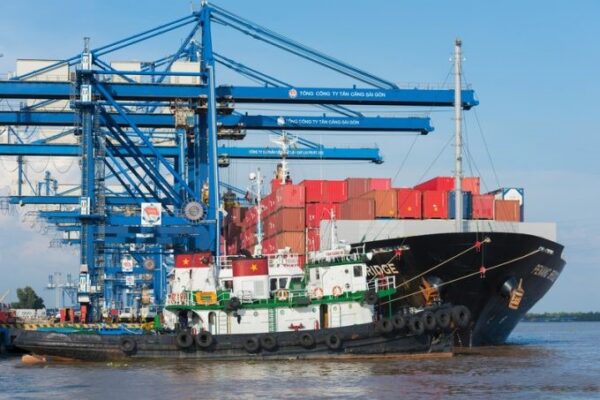Last week we issued an Urgent Notice advising that the Beilun port district of Ningbo was now under lockdown until further notice. Today we can report that new lockdowns in China are causing fresh disruption days after Chinese premier Xi Jinping doubled down on Beijing’s zero tolerance Covid-19 policies.
One of the hardest hit areas is still the port city of Ningbo in China’s north-east, where freight forwarders are reporting disruption to the area around the port going into lockdown. Last week the terminal, port and warehouse in the city’s Beilun district were closed and authorities had implemented the ‘whitelist’ system for truck drivers who were certified as free of Covid.
President Xi dashed hopes of changes to China’s zero-Covid policy at the Communist Party Congress last week. Xi said the Communist Party had waged an “all out people’s war to stop the spread of the virus” and failed to address fears the measures were harming the Chinese economy and global supply chains. Indeed, in what has now become a regular occurrence, Covid restrictions are impacting supply chains in Ningbo, Shanghai, and Tianjin.
On a positive note, the situation has prompted a downward shift in shipping freight rates and helped ease congestion. The balance between supply and demand will be the key to rate stability in the months to come.
Currently, we understand, only the Beilun area of Ningbo is affected by a lockdown for cargo originating from outside. Shanghai can be offered as an alternative, although additional trucking costs may apply.
In Shanghai, however, sporadic cases of Covid are resulting in isolated lockdowns in the city and delays are expected, despite normal operations at the port, terminals and warehouses. And there is a similar situation in Tianjin, where areas were under ‘closed-off management,’ with seaports, airports and warehouses operating with reduced efficiency.
Meanwhile, Zhengzhou, a key air cargo hub, also went into lockdown this week, impacting a million people in Zhongyuan district.
China’s zero-Covid policy has hit major manufacturing and exporting centres like Chengdu, Dalian, Guangzhou, Shenzhen and Tianjin. While some port operations are exempt from restrictions, manufacturing and inland logistics have been affected to varying degrees.
However, with President Xi cementing his grip on power with a record third five-year term during the recent party congress, the zero-Covid policy weighing down China’s long-term economic outlook is unlike to change, experts say.
In related news, China has announced better than expected GDP growth for Q3, helped by ‘resilient exports.’ China’s economy grew 3.9% in Q3, up from 0.4% in Q2, boosted by a 5.7% year-on-year export increase in September, in US dollar terms, but this was down from 7.1% growth in August.
The number of cities with Covid outbreaks and the share of economic activity in areas experiencing outbreaks have risen to levels last seen during the peak of the Omicron wave. High-frequency data point to a contraction in freight and passenger traffic this month, as well as declines in property and car sales.
China’s outlook remains gloomy. There is no prospect of it lifting its zero-Covid policy in the near future, and no meaningful relaxation is expected before 2024. Recurring virus disruptions will therefore continue to weigh on activity and further large-scale lockdowns cannot be ruled out.
China’s zero-Covid policy is impacting production and manufacturers are seeking alternatives. China has lost ground to competitors, particularly Vietnam, in key consumer categories like clothing and accessories, footwear, furniture, and travel goods. Last month’s uptick in exports will give way to renewed declines before long, given that the global economy is on course to tip into a recession next year.
For guidance about international trade and shipping, whether from China or anywhere else on the globe, contact us here at Colless Young. As licensed Customs Brokers and International Freight Forwarders, we handle your transport needs professionally, both import and export. We are based in Brisbane and offer a complete range of logistics services, by airfreight and sea cargo, through all Australian ports and airports.

